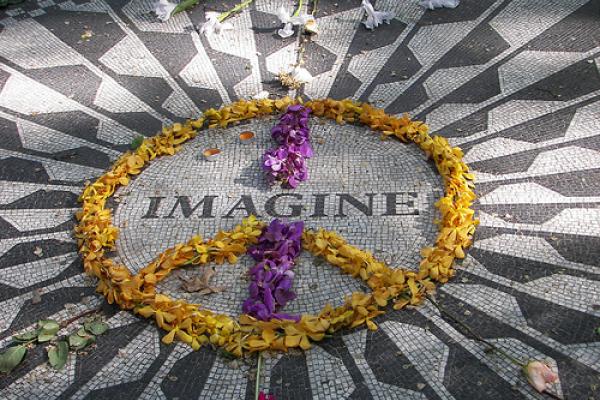Cee Lo Green got himself in some pop-culture hot water on New Years Eve when he changed the lyrics to John Lennon's "Imagine." You would think he was changing the Bible or something, but no, it was much worse. He changed the lyrics to a John Lennon song. "No religions" became "all religions" and all hell broke loose....
Suffice it to say that people were put out. They defended Lennon's unchangeable artistic canon. Green's supporters suggested that all art can be reinterpreted...even John Lennon's. Personally, I didn't find it offensive at all. Instead, I thought it was a thoughtful (if momentary) update to the iconic pop song. Given the religious strife in the world, expressing a love for humanity through all the world's religion was generous and very appropriate for a New Year celebration.
Alas, no. We're beset by fundamentalisms of all kinds (Lennonists?) and on all sides in this nation of ours. We're sufficiently afraid of religiosity that we've turned anti-religiosity into a religion and musicians become gods and their three minute songs become scripture...unchangeable holy writ.
We're afraid and that fear strips us of our compassion.
Read the Full Article

